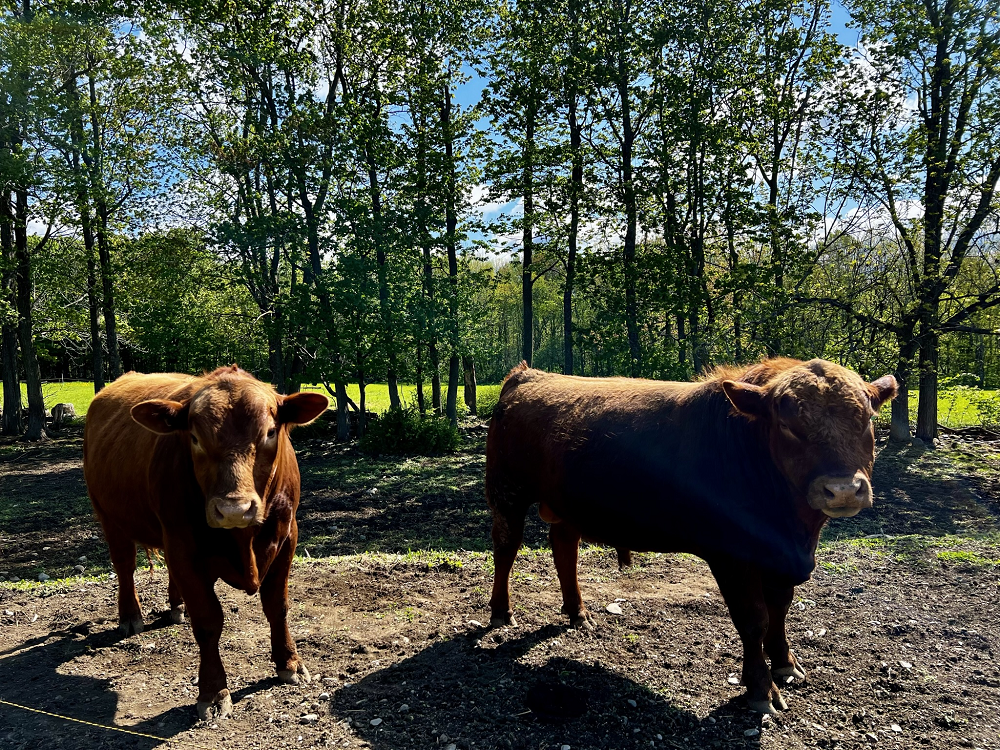Hello Folks,
Recently, I read an article in a farming publication. The writer discussed a noxious weed called Butterweed. This weed, and apparently it’s rather pretty, is native to southern Illinois. Apparently, it has also found its way south to Texas, north to the Dakotas and as far east as Ohio.
Now, you’re probably wondering why I am prattling on about Butterweed, which doesn’t even grow in Maine where we raise organic beef.
What caught my eye as I was reading was the USDA suggestion for how to control Butterweed in a no-till field. For corn, the conventional remedy is combinations of 2,4-D plus glyphosate, paraquat, or Acuron/Lexar/Stalwart!!!
Quite the herbicide cocktail, and I encourage you to read about how these herbicides interact with the ecosystems around them and the human body.
Spraying a cocktail like that is absolutely prohibited in organic farming. These pernicious chemicals have no place within an organic farming system.
Sometimes I struggle as an organic farmer to share the benefits of organic farming. It’s easy to say what we DON’T DO rather than what we DO. But in this case, I just gotta say what we DON’T do. We DON’T spray the likes of 2,4-D plus glyphosate, paraquat, or Acuron/Lexar/Stalwart!!!
When I drive around our rural landscape in central Maine, I can see the evidence of herbicide spraying, especially in corn fields. Instead of plowing a field in the spring, the non-organic farmer sprays an herbicide to kill the weeds that grew within the previous year’s corn crop. Then, they plant the corn into the no-till field.
The little green corn shoots that emerge stand in stark contrast to all the brown detritus that was killed by the herbicides. You can see it for yourself; it’s definitely most notable in the spring. I don’t know, however, what kind(s) of herbicides are being sprayed on the corn fields. My guess it’s not what the USDA recommends for Butterweed. My point is this: Herbicides are prevalent in conventional agriculture.
It’s not my intent to judge other farmers’ practices. I do feel like it is my job, though, to try my best to explain organic farming practices — what we DO and what we DON’T do.
One thing we DO is go through an annual inspection audit by a professional who is trained in reading the agricultural landscape of an organic farm. They would be able to tell if we were using 2,4-D plus glyphosate, paraquat, or Acuron/Lexar/Stalwart or any other kind of herbicide. We don’t grow corn anymore, but if we did, a clean weed-free corn field would arouse suspicion.
A lot of farms say they follow organic practices, but yet they aren’t certified. This is a claim they make. It very well could be true. In reality, there is no one auditing these farms — reading their landscapes — to ensure that they’re standing by their word of what they DO and DON’T do.
On our MOFGA-certified organic farm, we have to prove what we DO and DON’T DO, and we’re proud of it.
Cowtastically yours,
Sonja

